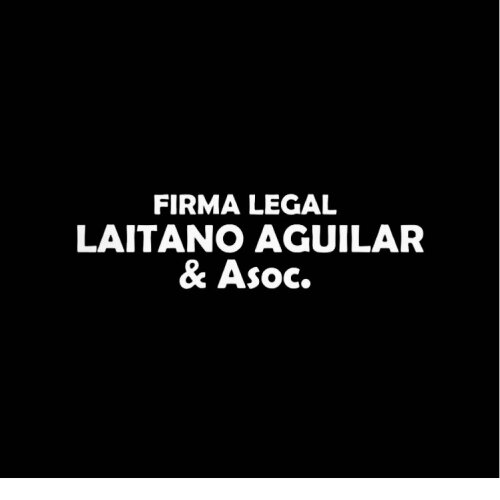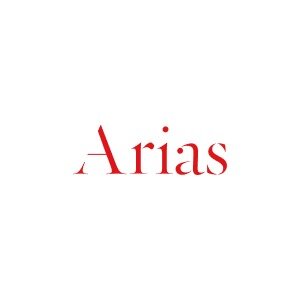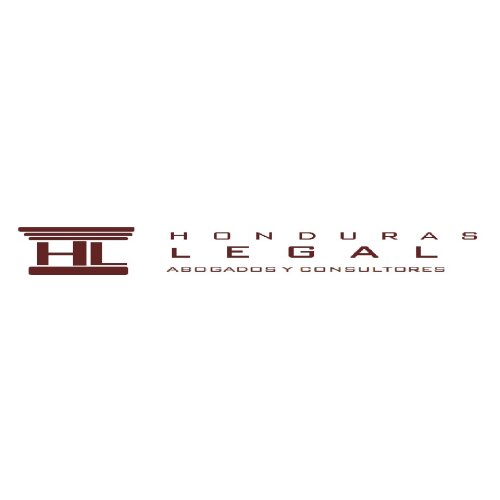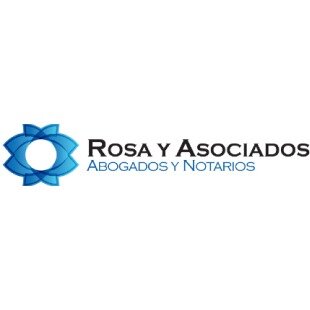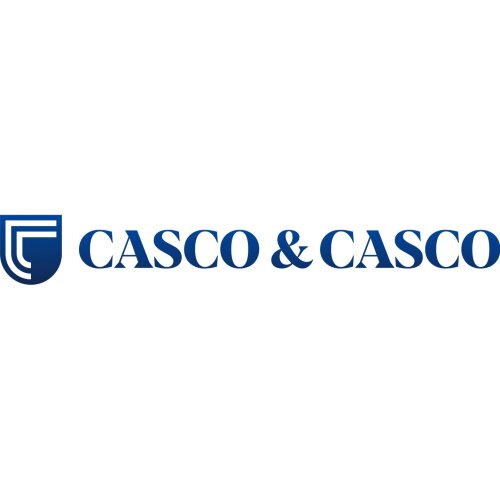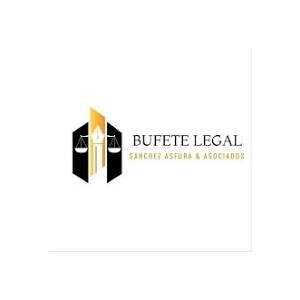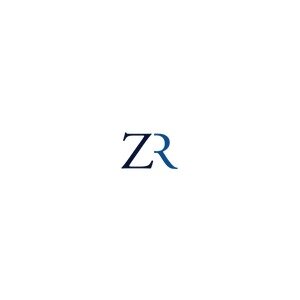Best Mining Law Lawyers in Tegucigalpa
Share your needs with us, get contacted by law firms.
Free. Takes 2 min.
List of the best lawyers in Tegucigalpa, Honduras
About Mining Law in Tegucigalpa, Honduras
Mining Law in Tegucigalpa, Honduras refers to the collection of legal norms, regulations, and procedures that govern the exploration, extraction, and management of mineral resources within the country’s capital and the broader national territory. Mining plays an essential role in the Honduran economy, involving both small-scale artisanal operations and large industrial projects. The law seeks to balance economic growth, environmental protection, and the rights of local communities. It is primarily regulated by the Mining Law of Honduras and overseen by government agencies tasked with granting mining rights, ensuring compliance, and monitoring environmental and social impacts.
Why You May Need a Lawyer
There are several scenarios where seeking legal help in Mining Law becomes essential. Common situations include:
- Applying for mining concessions or licenses
- Negotiating with local communities regarding land use or environmental concerns
- Handling disputes over mining rights or overlapping land claims
- Ensuring compliance with complex environmental, health, and safety regulations
- Drafting, reviewing, and negotiating contracts with partners, contractors, or rural landowners
- Facing government audits, inspections, or sanctions
- Managing issues related to foreign investment in the mining sector
- Pursuing administrative or judicial appeals in case of disputes or denied licenses
- Guidance on taxation and royalty obligations specific to mining operations
Local Laws Overview
Mining in Tegucigalpa and throughout Honduras is principally regulated by the General Mining Law (Ley General de Minería), enacted in 2013 and periodically updated. Key aspects include:
- Concessions: Mining activity requires a government-issued concession, which grants rights to explore or extract minerals within a defined area and time frame.
- Environmental Regulations: Mining projects must comply with strict environmental standards, including mandatory Environmental Impact Assessments (EIAs) and public consultations.
- Community Rights: The law recognizes the rights of indigenous and local communities, who must be consulted prior to the granting of new mining rights.
- Foreign Investment: Foreign companies are permitted to participate in mining activities but must comply with national regulations and obtain the necessary permits.
- Royalty and Taxation: The law outlines royalty rates, fees, and taxes that must be paid to the Honduran government based on production levels and mineral types.
- Oversight: Governmental bodies such as the Instituto Hondureño de Geología y Minas (INHGEOMIN) are responsible for supervising, granting, and monitoring mining activities.
- Enforcement and Penalties: Non-compliance with mining laws can result in penalties, suspension of operations, or revocation of concessions.
Frequently Asked Questions
What government authority regulates mining in Tegucigalpa?
Mining activities are primarily regulated by the Instituto Hondureño de Geología y Minas (INHGEOMIN), which oversees the granting of concessions, ensures compliance with regulations, and monitors all mining operations.
Do I need a specific license or permit to start mining?
Yes, you must obtain a government-issued concession or permit before beginning exploration or extraction. Illegal mining without a permit is subject to sanctions and penalties.
How are environmental concerns addressed in mining projects?
All mining projects must complete an Environmental Impact Assessment (EIA) and engage in public consultation processes. These measures are designed to minimize environmental risks and promote sustainable practices.
Are foreign entities allowed to engage in mining activities?
Yes, foreign investors can participate in the Honduran mining sector, provided they comply with all applicable laws and obtain the necessary concessions and environmental approvals.
What taxes and royalties apply to mining operations?
Mining companies must pay royalties based on mineral production, in addition to taxes stipulated by national and local law. The rates depend on the type of mineral and volume extracted.
What rights do local or indigenous communities have?
Local and indigenous communities have the right to be informed and consulted about proposed mining activities on their lands. Their participation is mandatory as part of the Environmental Impact Assessment process.
How long does it take to get a mining concession approved?
The approval process can vary widely depending on the complexity of the project, completeness of documentation, and outcomes of required consultations. It generally takes several months or more.
Can mining concessions be revoked?
Yes, concessions can be revoked if the holder fails to comply with legal requirements, environmental regulations, or contractual obligations. The process may involve administrative and judicial review.
What legal recourse is available in case of disputes?
Disputes may be resolved through administrative appeals before government bodies or, if necessary, through the Honduran courts. Legal representation is strongly recommended in dispute scenarios.
What happens if mining is conducted without a legal concession?
Unauthorized mining is illegal and may result in significant fines, seizure of equipment, closure of operations, and possible criminal prosecution.
Additional Resources
For further information, guidance, or assistance regarding Mining Law in Tegucigalpa, consider the following entities:
- Instituto Hondureño de Geología y Minas (INHGEOMIN): Main administrative authority for mining operations, permitting, and oversight.
- Secretaría de Recursos Naturales y Ambiente (SERNA): Regulates environmental aspects and issues related to natural resources.
- Ministerio Público: Handles legal investigations and enforcement actions for non-compliance in the mining sector.
- Local Chambers of Commerce and Industry: Offer guidance and networking for companies and investors in the mining industry.
- Honduran Bar Association (Colegio de Abogados de Honduras): Directory of qualified legal professionals specializing in mining and environmental law.
Next Steps
If you need legal assistance in Mining Law in Tegucigalpa, follow these recommended steps:
- Gather all relevant documents, such as land titles, business registrations, and prior correspondence with authorities.
- Define your specific needs, whether applying for a concession, handling a dispute, or compliance review.
- Contact a Honduran lawyer with experience in Mining Law for an initial consultation. Verify their credentials and experience in local and national mining cases.
- Prepare questions in advance to address your concerns during the legal consultation.
- Follow the lawyer’s advice on how to proceed, whether submitting applications, negotiating with stakeholders, or addressing regulatory compliance issues.
Lawzana helps you find the best lawyers and law firms in Tegucigalpa through a curated and pre-screened list of qualified legal professionals. Our platform offers rankings and detailed profiles of attorneys and law firms, allowing you to compare based on practice areas, including Mining Law, experience, and client feedback.
Each profile includes a description of the firm's areas of practice, client reviews, team members and partners, year of establishment, spoken languages, office locations, contact information, social media presence, and any published articles or resources. Most firms on our platform speak English and are experienced in both local and international legal matters.
Get a quote from top-rated law firms in Tegucigalpa, Honduras — quickly, securely, and without unnecessary hassle.
Disclaimer:
The information provided on this page is for general informational purposes only and does not constitute legal advice. While we strive to ensure the accuracy and relevance of the content, legal information may change over time, and interpretations of the law can vary. You should always consult with a qualified legal professional for advice specific to your situation.
We disclaim all liability for actions taken or not taken based on the content of this page. If you believe any information is incorrect or outdated, please contact us, and we will review and update it where appropriate.



